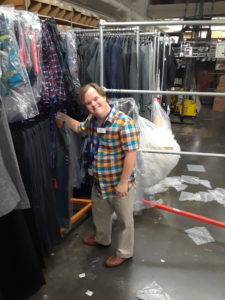I have had both positive and negative experiences with relationships. I really struggled with making friends throughout high school and even spent time with “friends” that were not a good influence on me and took advantage of my kindness. After graduation, while I never dated anyone, I did make some meaningful friendships with my roommates, classmates, and others in my society (which is my university’s version of fraternities and sororities).

What attracted me to these people was the fact that they actually took interest in me and my desires for the future, while before, people would not even take the time to listen. I am still very cautious about getting too close to people, lest they would treat me differently if they found out that I have autism or pressure me into doing things that I do not want to do. My mother would always bring up Proverbs 18:24 whenever the topic of friendships was brought up: “He that hath friends must show himself friendly.” This verse is true and plain in how to make friends and keep them. However, for those on the spectrum, that is much easier said than done.
Probably much like others on the spectrum, I would be so anxious in social situations, struggling to understand non-verbal language and context of the conversation, that I would hardly say anything for fear of being misunderstood or at best not heard at all which leaves me feeling awkward and isolated. On the other hand, some might come across as over-friendly or random, which may annoy the people around them. As far as maintaining friendships, many on the spectrum, including myself, may be unsure of how to express their appreciation for the other person or how to contribute to the relationship.
While I may still be struggling with friendships, the most important relationship that I wish to maintain is that with my family. I have a cousin who is a grad student at the university that I am attending, and he is very sweet, understanding, and always willing to listen. I have met a lot of mutual friends through him and my roommate is his girlfriend. Of course, no family is perfect, but I have shared a lot of meaningful experiences with them, and overall, they are my best support system.
Looking back on my experiences, a big take-away that I would make is to value the ones who genuinely care for you, whether it be a school or work, but most importantly with your family.


